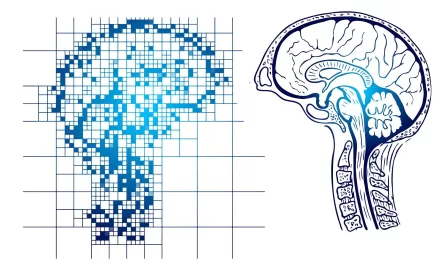In a groundbreaking study, researchers at the Centre de Recherche du Centre Hospitalier de l’Université de Montréal (CRCHUM) have identified brain molecules that play a pivotal role in controlling food cravings. The findings, published in Nature Communications, may lead to innovative therapies for treating obesity and metabolic disorders.
The research focuses on endocannabinoids, critical molecules in the brain that regulate food intake and energy expenditure. By targeting the enzyme ABHD6 in specific brain regions of mice, scientists were able to significantly reduce obesity without inducing anxiety or depression. This discovery marks a potential shift in combating obesity through precise neural pathway interventions.
Targeting the Brain’s Reward Center
Dr. Stéphanie Fulton, a medical professor at Université de Montréal, has spent years studying the interplay between metabolism, mood, and eating behaviors. Her team’s latest work reveals that neurons in the nucleus accumbens—a brain region rich in endocannabinoids—strongly influence body weight by regulating food reward and physical activity.
“We expected that increasing levels of 2-arachidonoylglycerol (2-AG), a key endocannabinoid, would stimulate food intake,” said Dr. Fulton. “However, paradoxically, deleting the gene encoding ABHD6 in the nucleus accumbens reduced the motivation for food while increasing interest in physical activity.”
The study’s co-authors, doctoral student David Lau and former postdoctoral fellow Dr. Stephanie Tobin, found that mice with this genetic modification chose to spend more time on a running wheel, contrasting with a control group that became obese and lethargic.
A Targeted Approach to Obesity
Injecting an ABHD6 inhibitor directly into the brains of mice completely protected them from weight gain and obesity. Notably, the effects of ABHD6 inhibition vary depending on the brain region targeted.
Previous research by Dr. Fulton and her colleague Dr. Thierry Alquier demonstrated that blocking ABHD6 in certain hypothalamic neurons made mice resistant to weight loss. In contrast, the current study shows that inhibiting ABHD6 across the brain can mitigate weight gain, even on a high-fat diet.
No Anxiety or Depression Side Effects
One of the most significant findings of the study is the absence of anxiety and depressive behaviors in mice with ABHD6 inhibition. This is crucial, given the history of weight-loss drugs like Rimonabant, which targeted cannabinoid receptors but were withdrawn from the market due to severe side effects, including depression and suicidal tendencies.
“Our study suggests that targeting ABHD6 offers a safer approach to managing obesity and its associated disorders,” said Dr. Fulton.
Future Implications
The research team believes their findings pave the way for new treatments for obesity and related conditions, such as type 2 diabetes. While ABHD6 inhibitors are currently being screened for potential use, further studies are needed to determine whether the mechanisms observed in mice translate to humans.
The study, titled “ABHD6 loss-of-function in mesoaccumbens postsynaptic but not presynaptic neurons prevents diet-induced obesity in male mice,” was authored by David Lau, Dr. Stephanie Tobin, and their collaborators.
As the global obesity crisis continues, this discovery provides hope for safer and more effective interventions, potentially transforming how obesity and metabolic disorders are treated.












